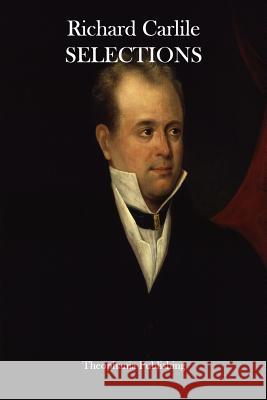Selections » książka
Selections
ISBN-13: 9781515336716 / Angielski / Miękka / 2015 / 220 str.
Thank you for checking out this book by Theophania Publishing. We appreciate your business and look forward to serving you soon. We have thousands of titles available, and we invite you to search for us by name, contact us via our website, or download our most recent catalogues. Richard Carlile (8 December 1790 - 10 February 1843) was an important agitator for the establishment of universal suffrage and freedom of the press in the United Kingdom. His interest in politics was kindled first by economic conditions in the winter of 1816 when Carlile was put on short-time work by his employer creating serious problems for the family: "I shared the general distress of 1816 and it was this that opened my eyes." He began attending political meetings where speakers like Henry Hunt complained that only three men in a hundred had the vote, and was also influenced by the publications of William Cobbett. As a way of making a living he sold the writings of parliamentary reformers such as Tom Paine on the streets of London, often walking "thirty miles for a profit of eighteen pence." In April 1817 he formed a publishing business with the printer William Sherwin and rented a shop in Fleet Street. To make political texts such as Paine's books The Rights of Man and the Principles of Government available to the poor he split them into sections which he sold as small pamphlets, similarly publishing The Age of Reason and Principles of Nature. He issued pirated copies of Southey's Wat Tyler and after the radical William Hone's arrest in May, he reissued the parody of parts of the Book of Common Prayer for which Hone was to be tried, then was himself arrested in August and held without charge until Hone was acquitted in December. He took on distributing the banned Radical weekly The Black Dwarf at a time when the government was prosecuting publishers: "The Habeas Corpus Act being suspended ... all was terror and alarm, but I take credit to myself in defeating the effect of these two Acts upon the Press... Of imprisonment I made sure, but I felt inclined to court it than to shrink from it." Carlile then brought out a radical journal, Sherwin's Political Register, which reported political meetings and included extracts from books and poems by supporters of the reform movement such as Percy Bysshe Shelley and Lord Byron. The popularity of this helped to soon bring his profit from his publishing venture to 50 a week."
Zawartość książki może nie spełniać oczekiwań – reklamacje nie obejmują treści, która mogła nie być redakcyjnie ani merytorycznie opracowana.











